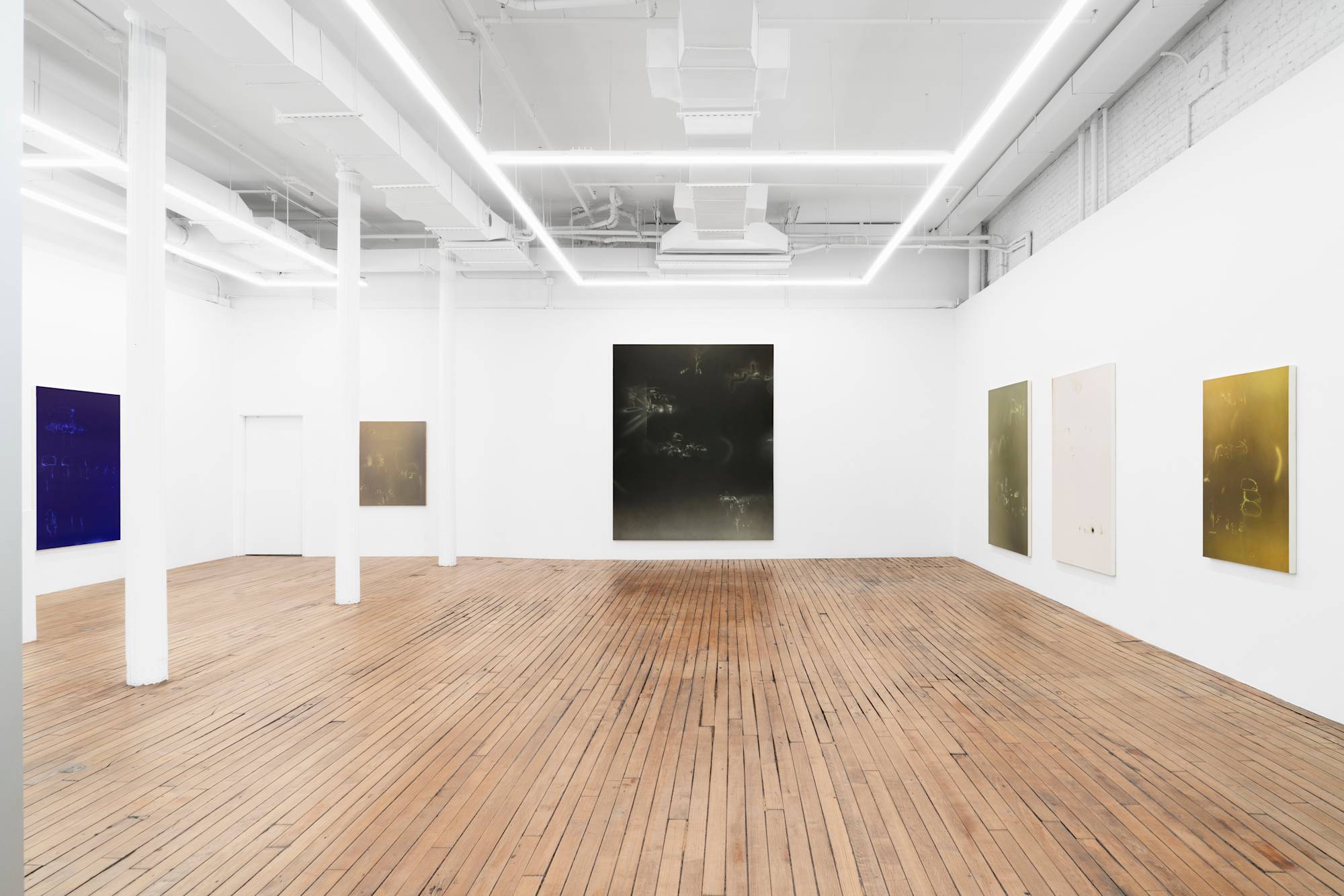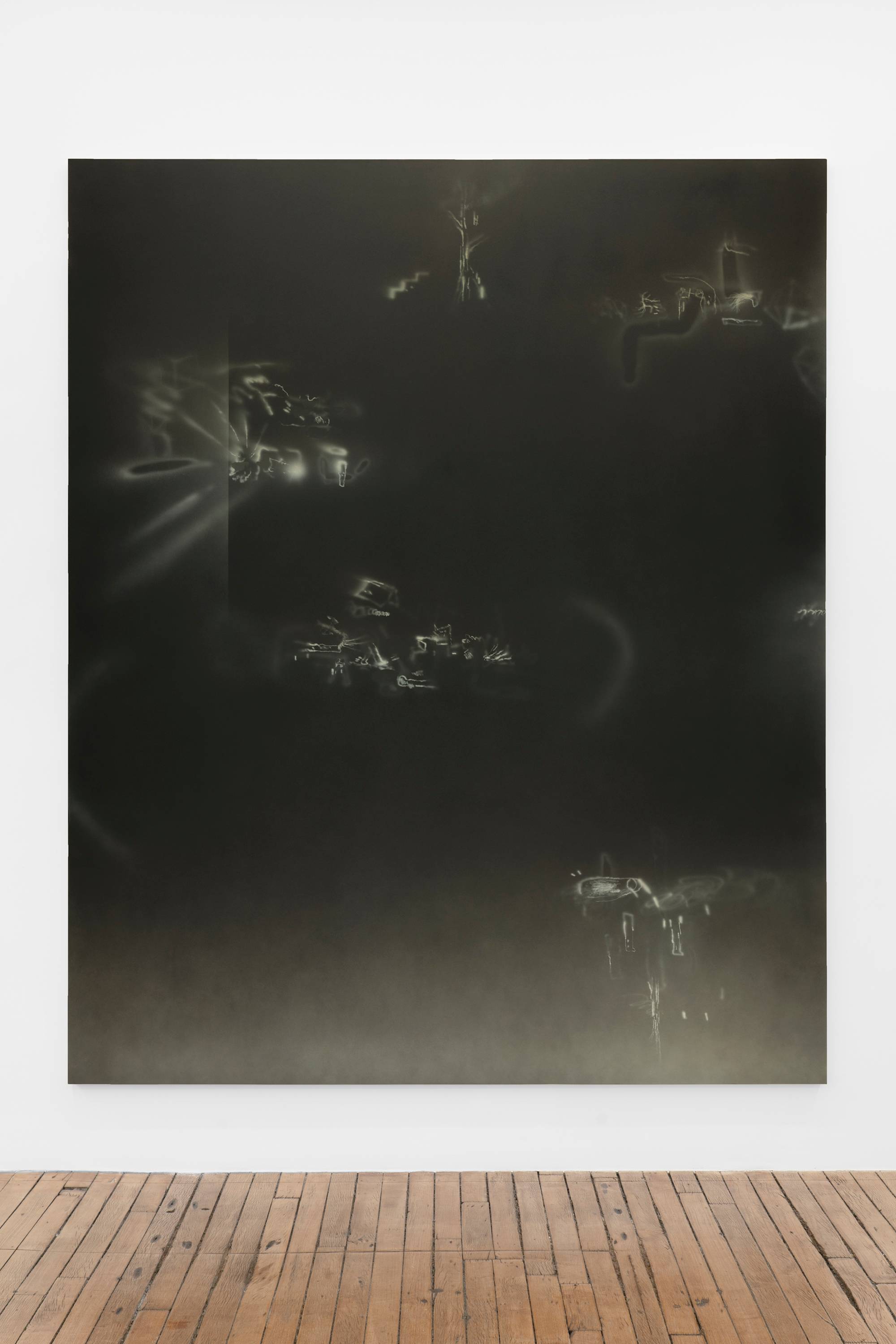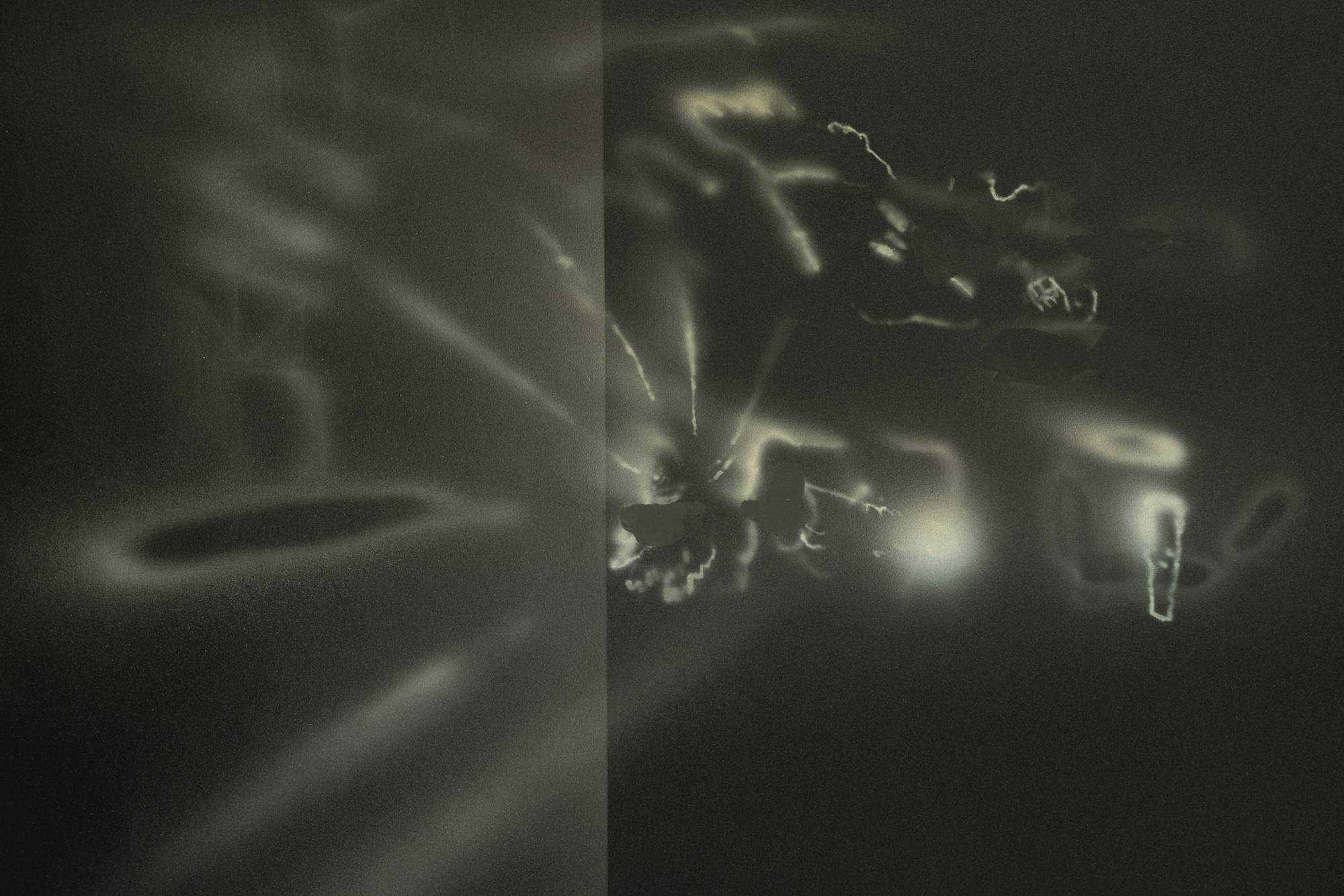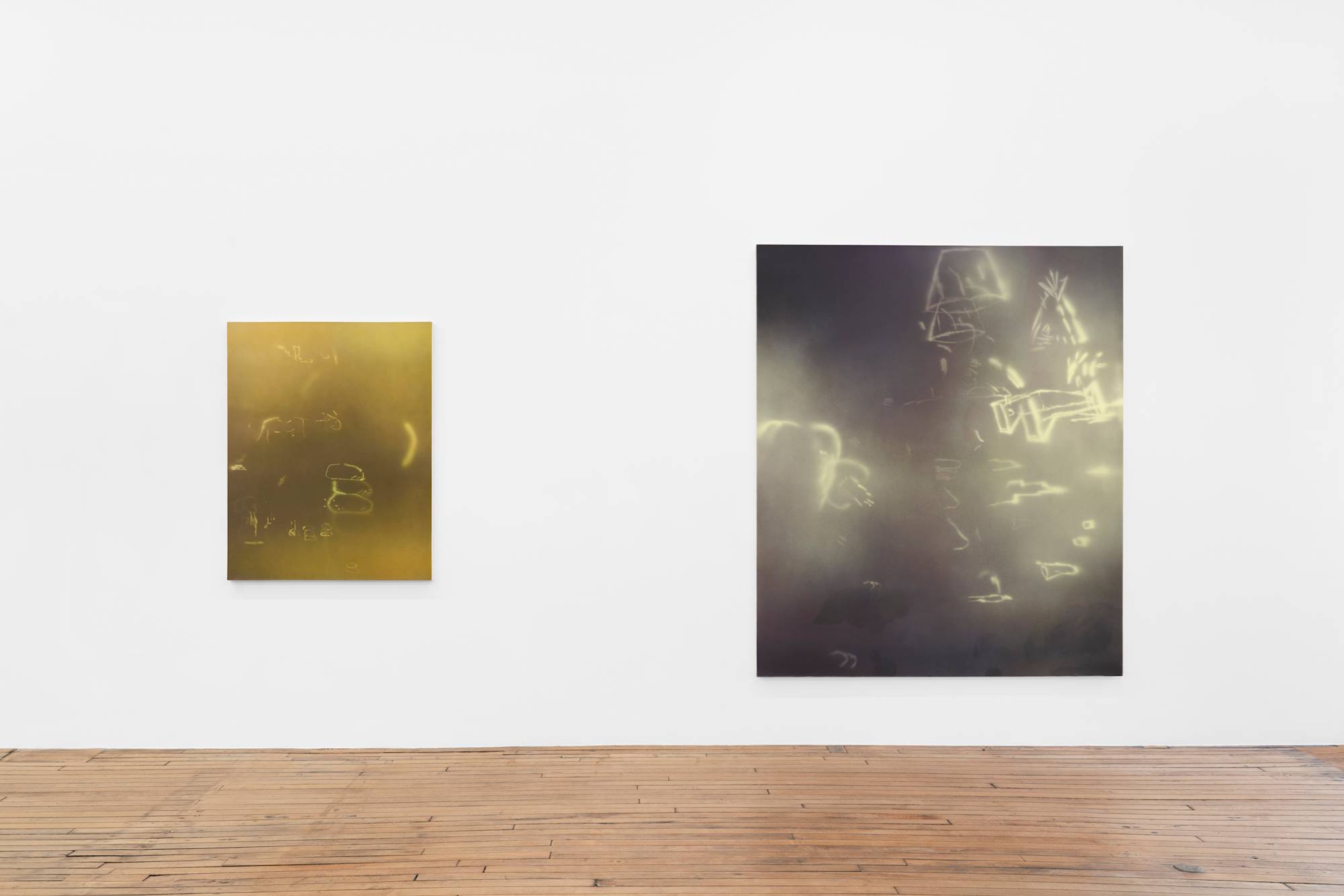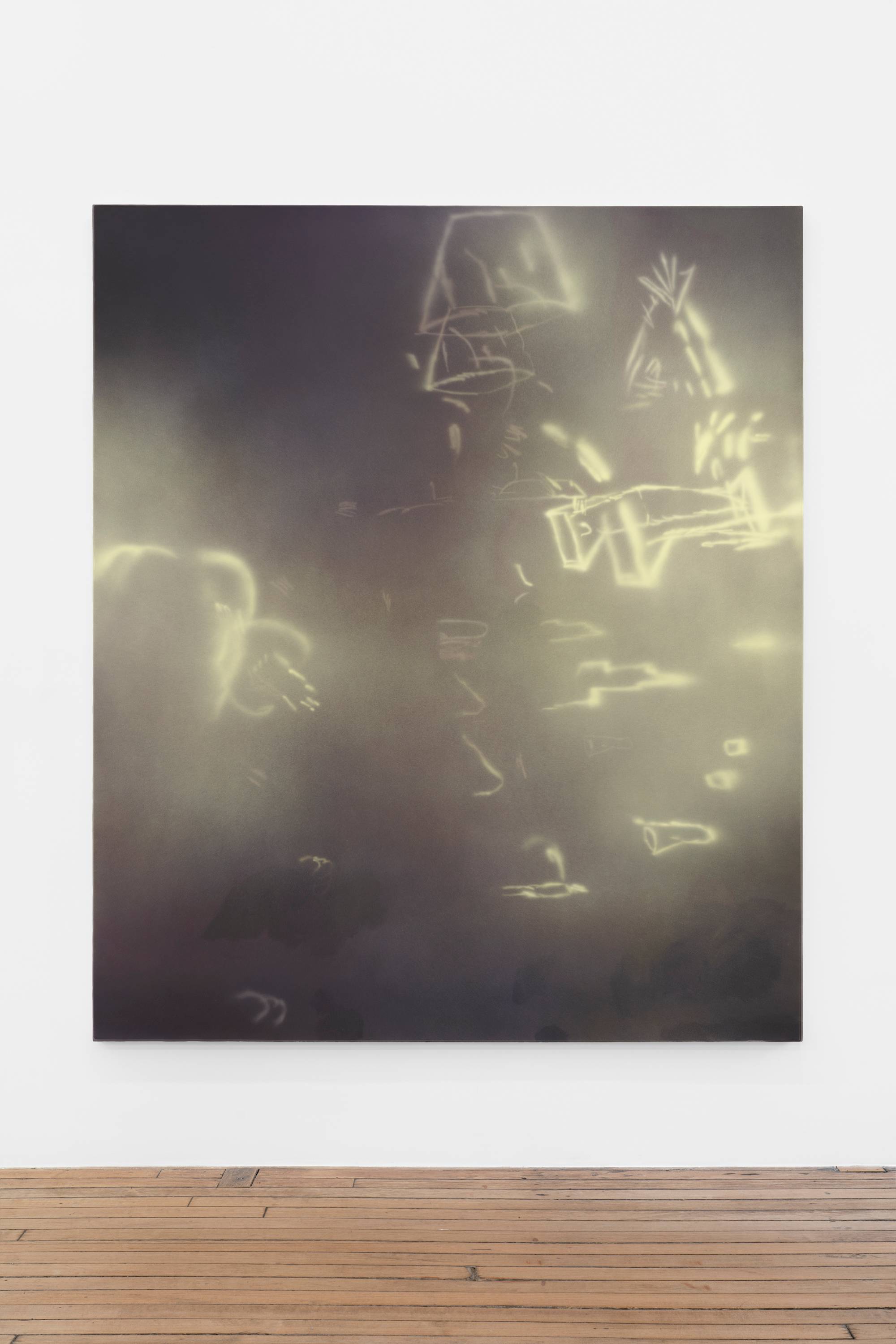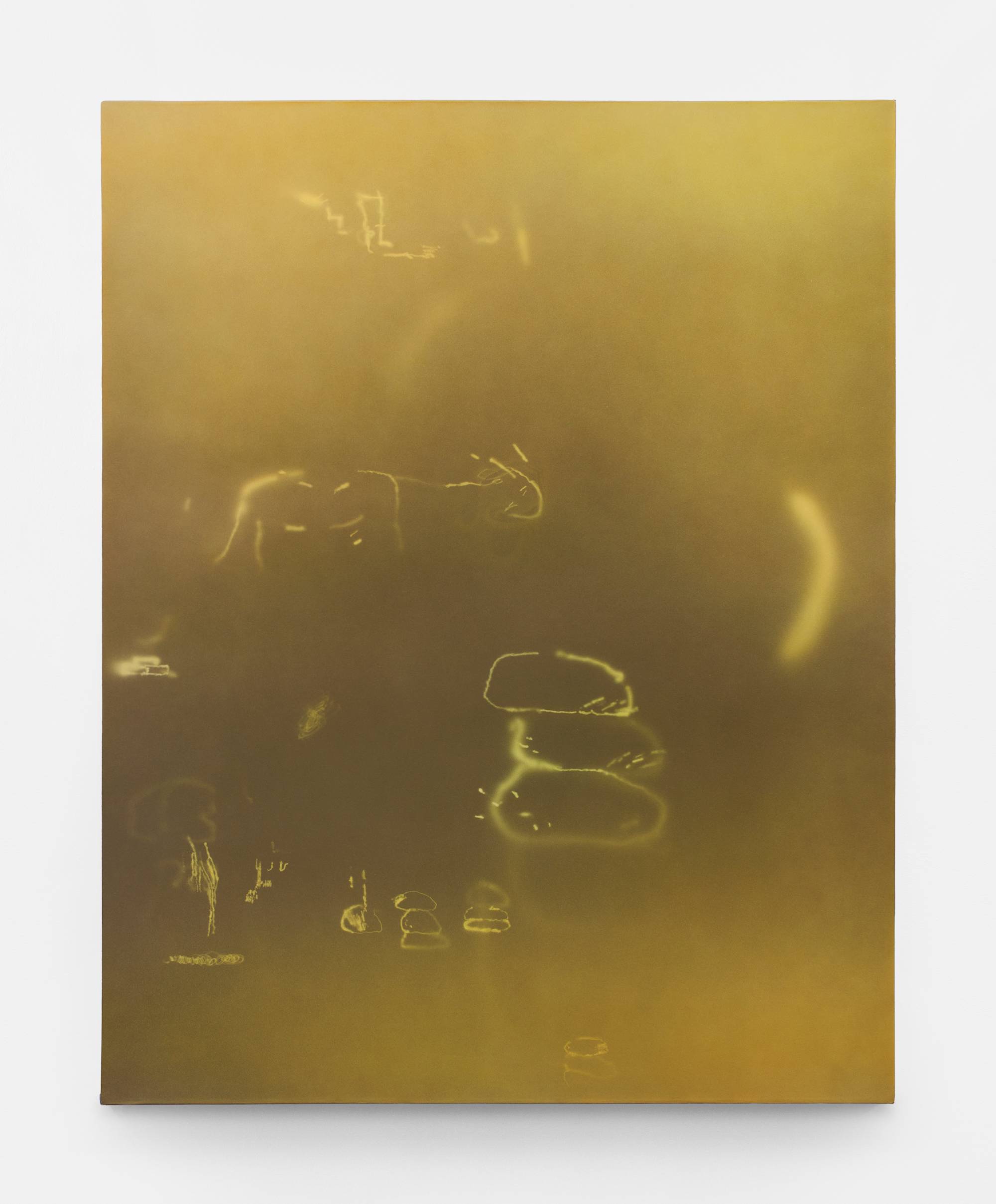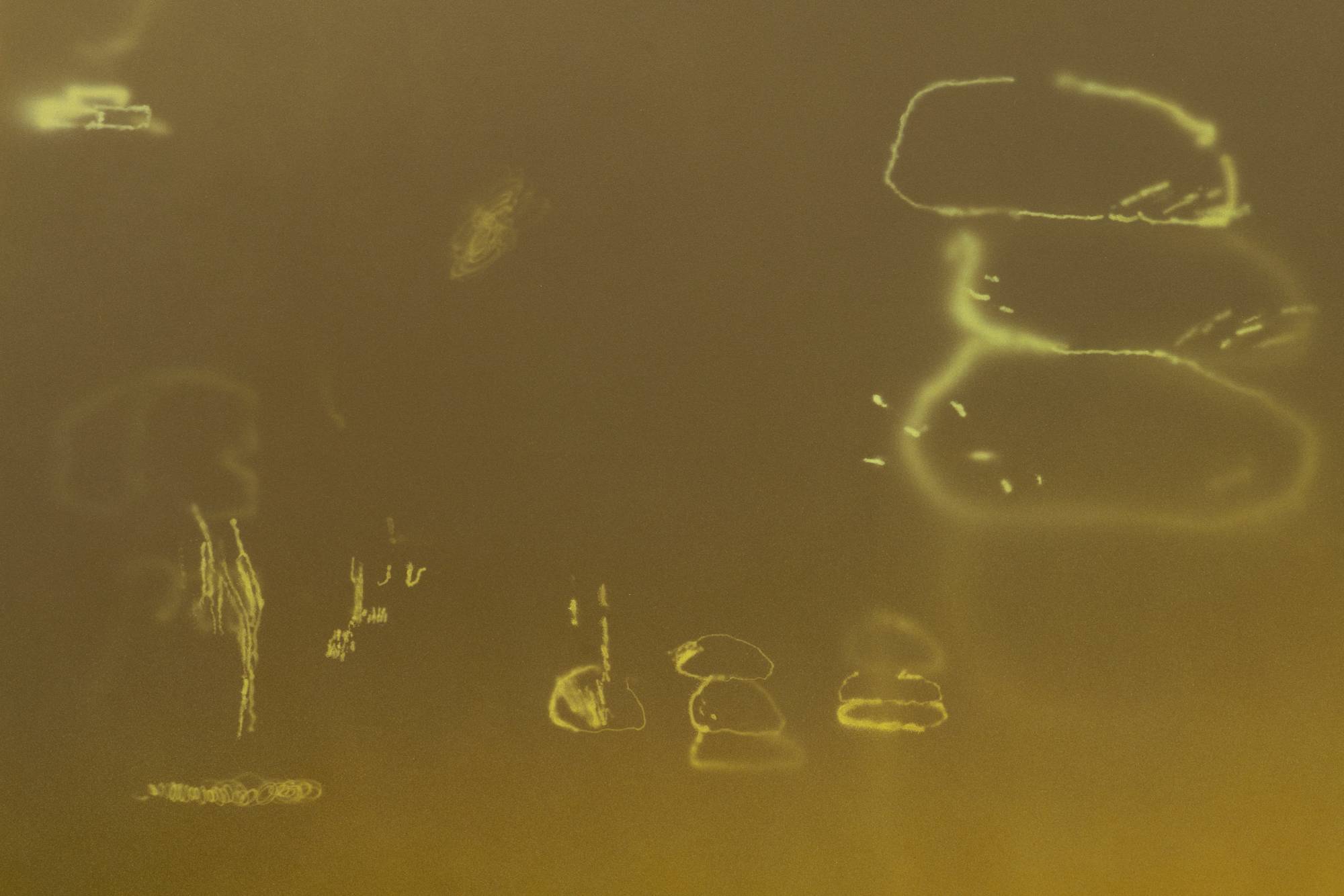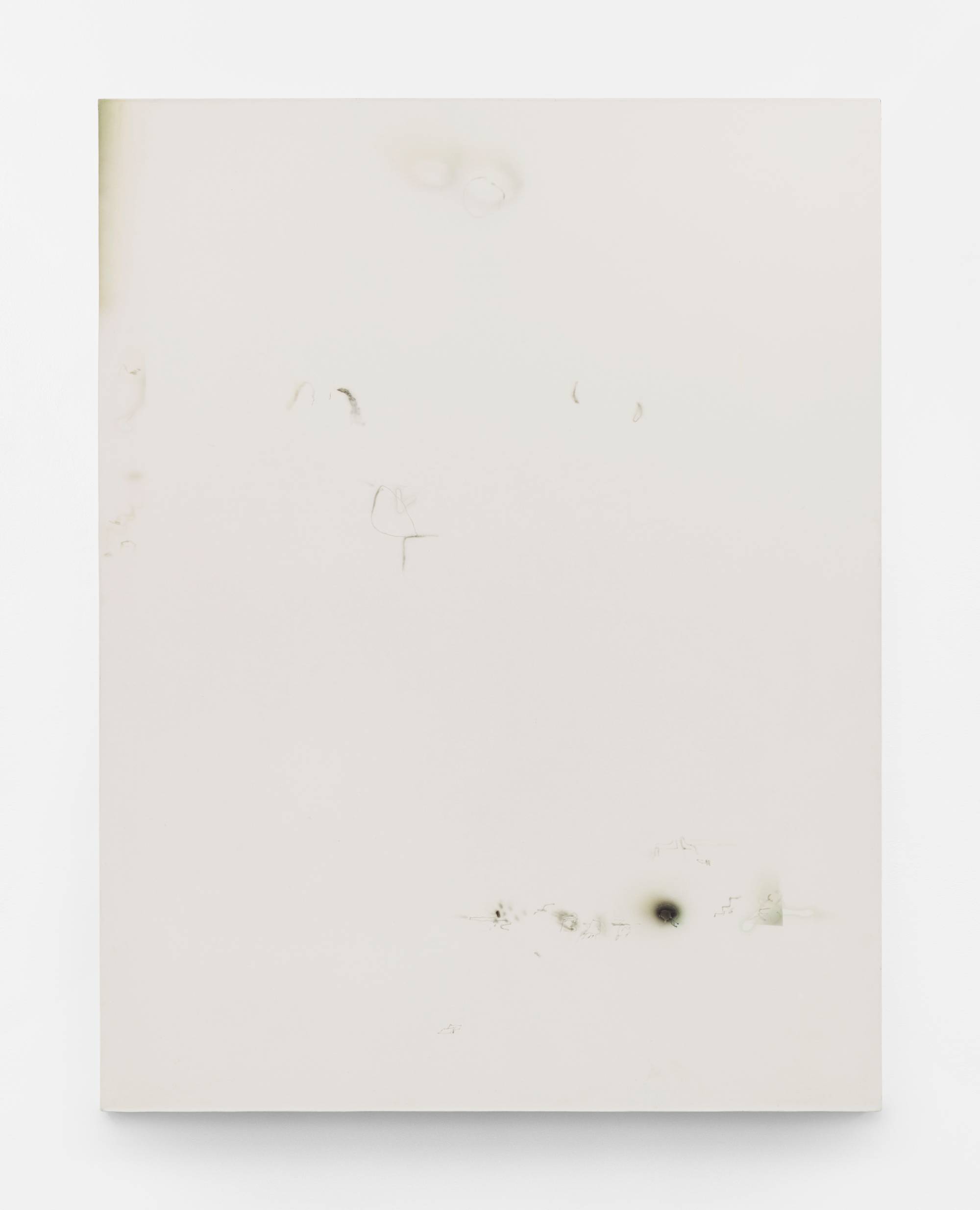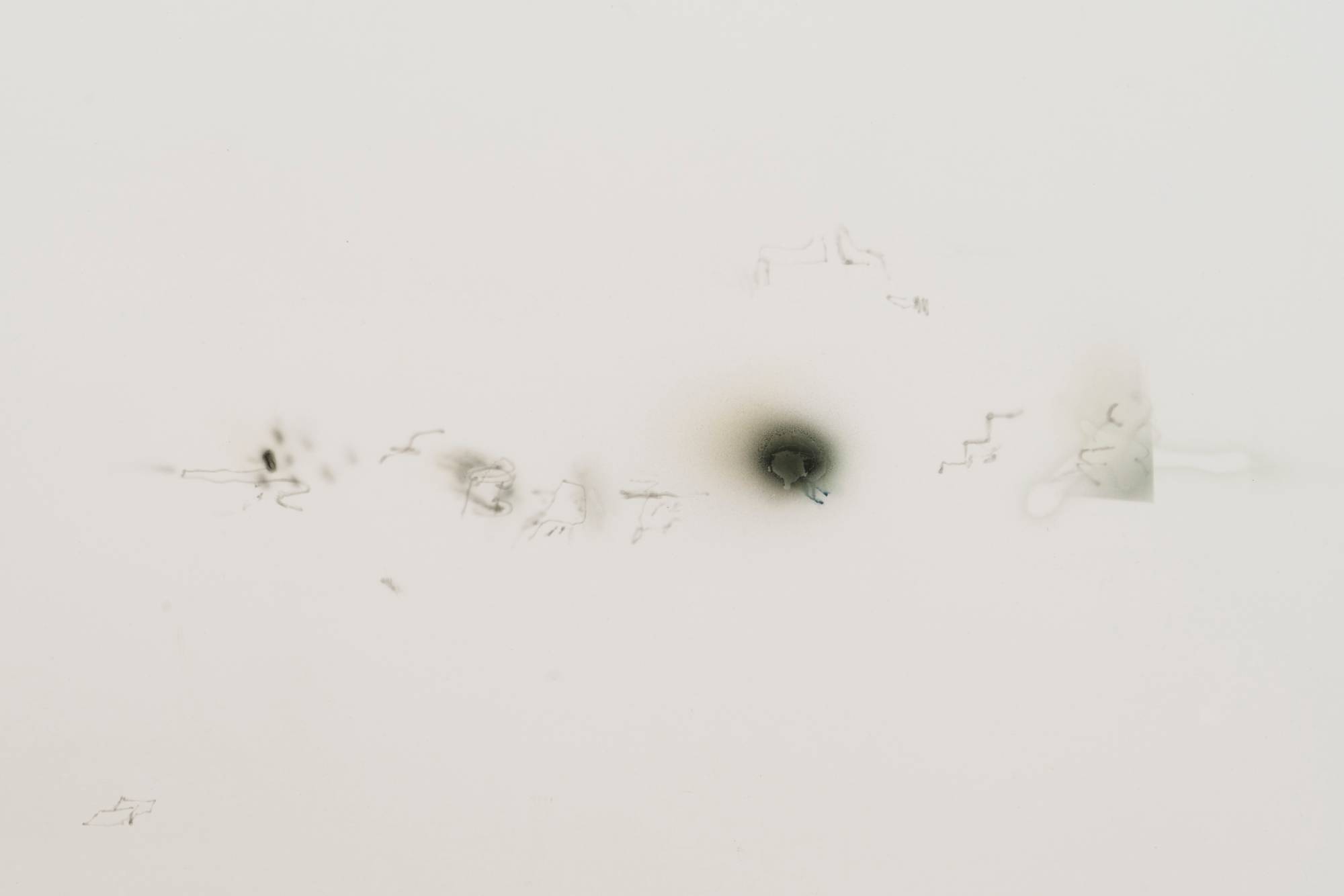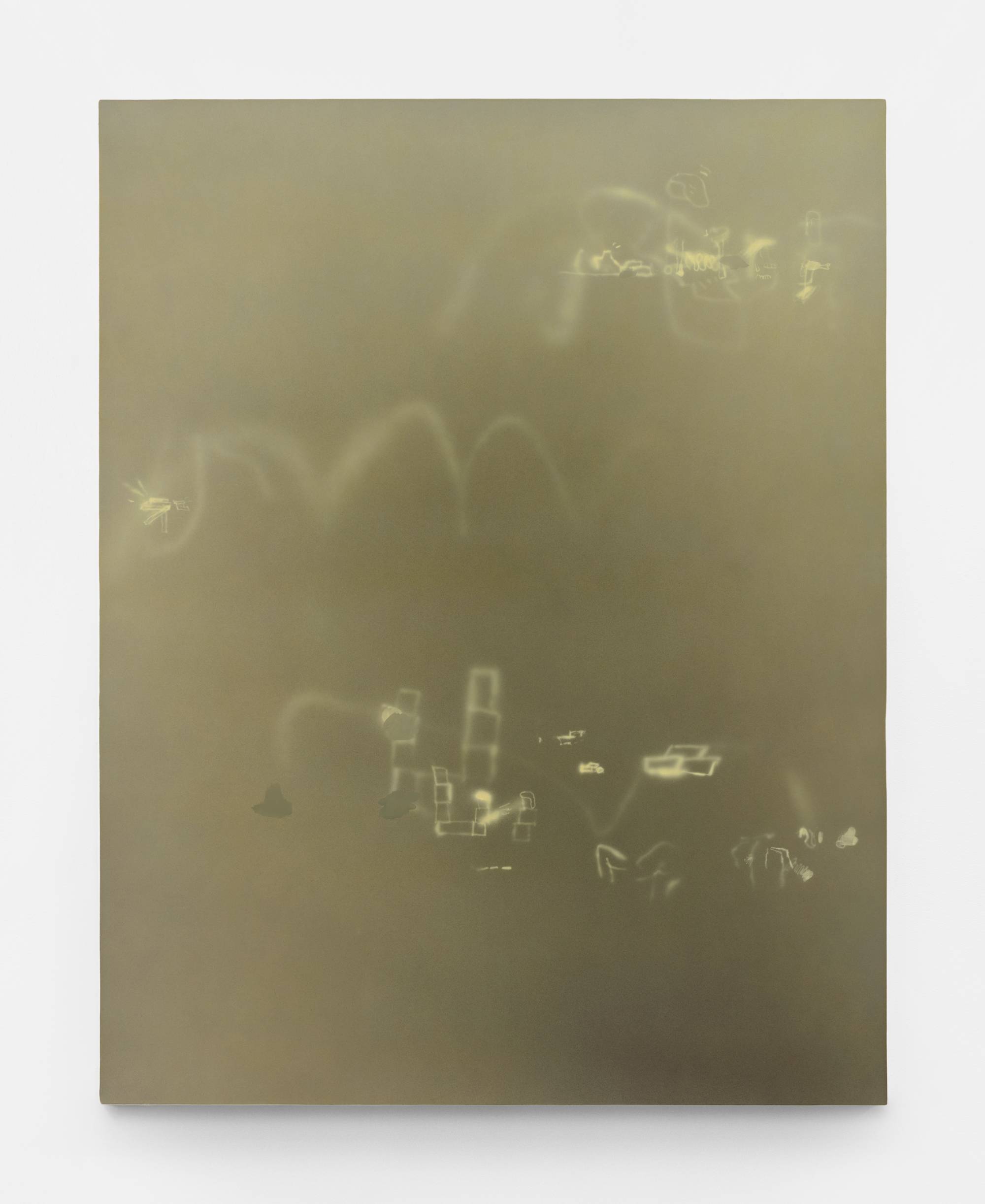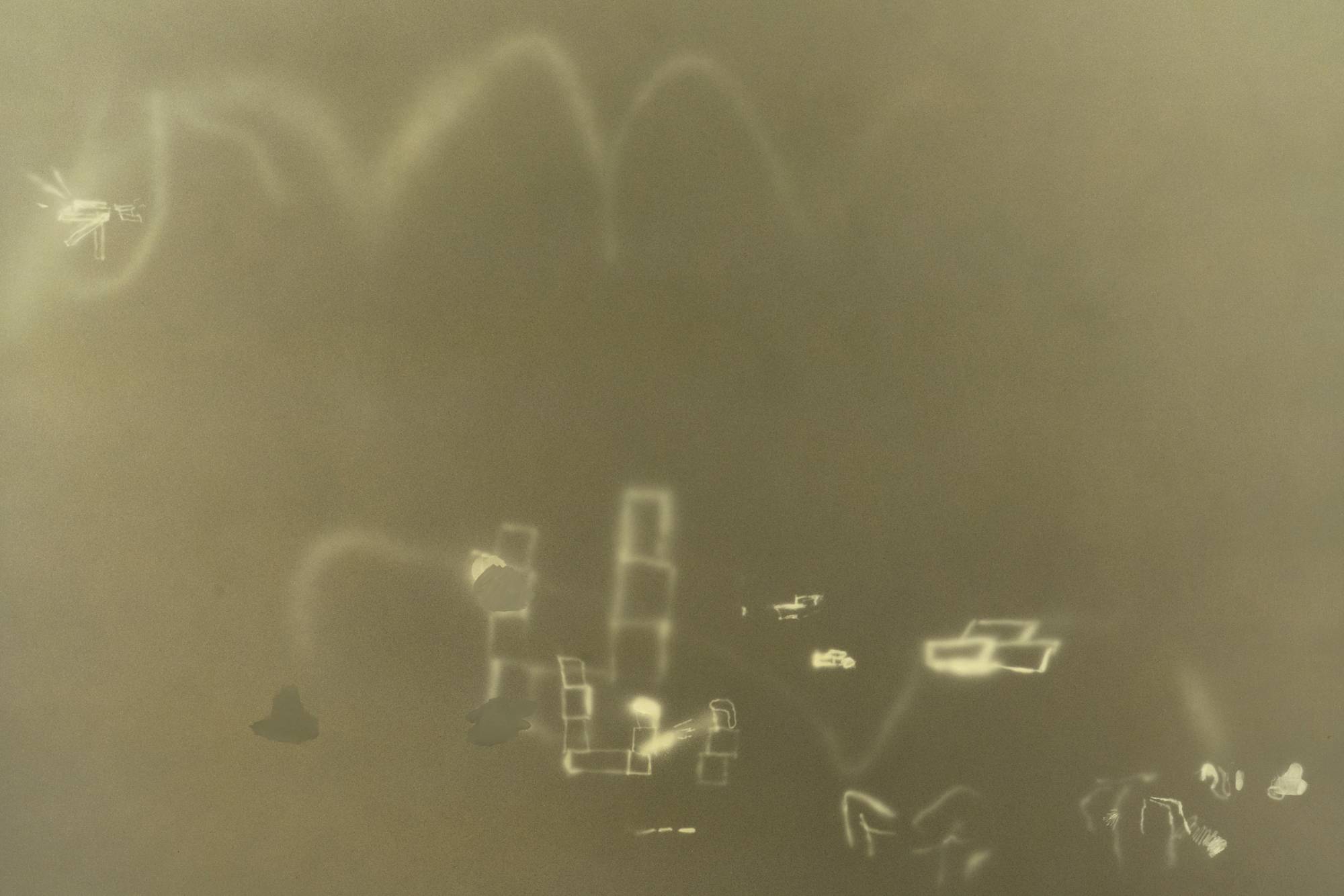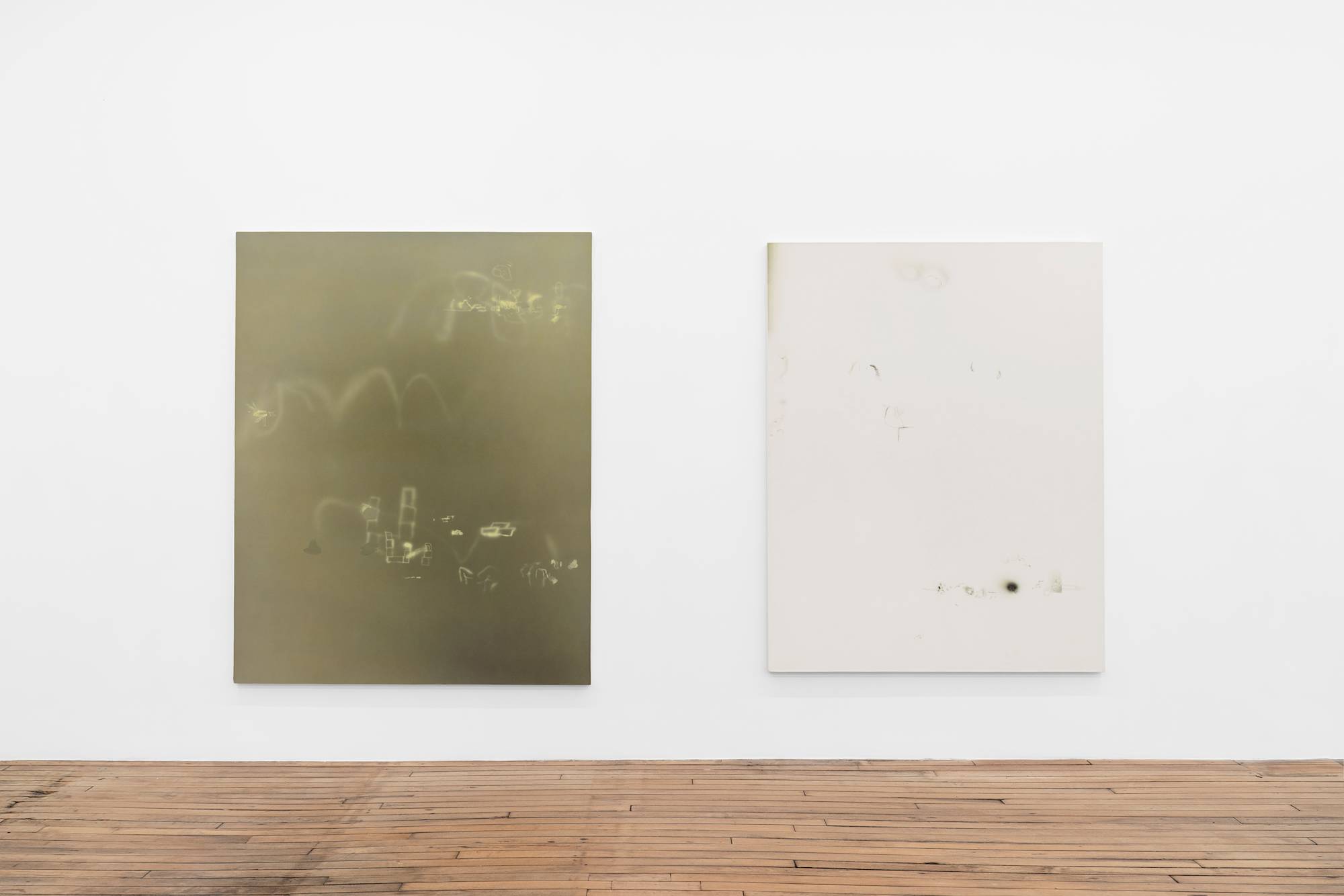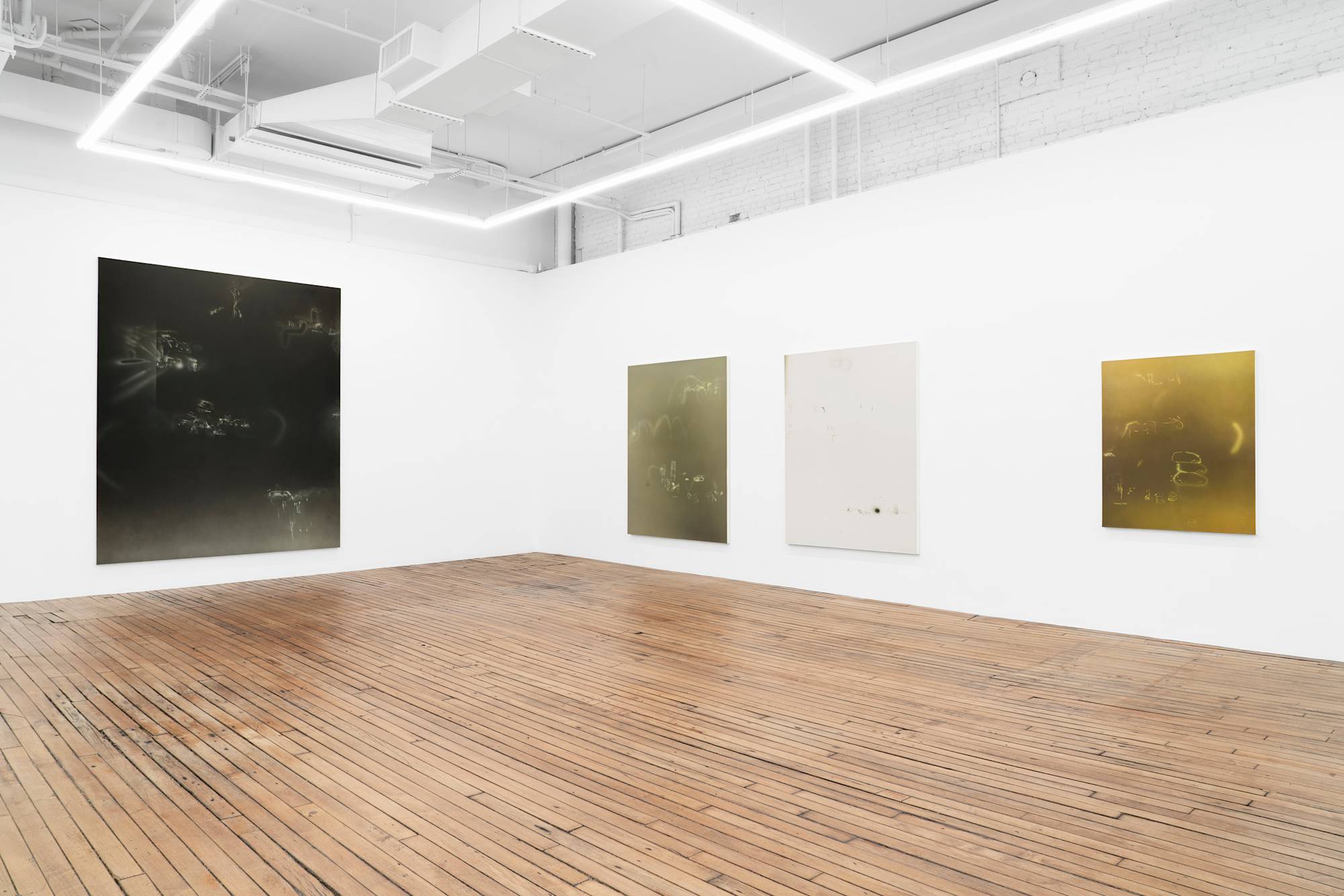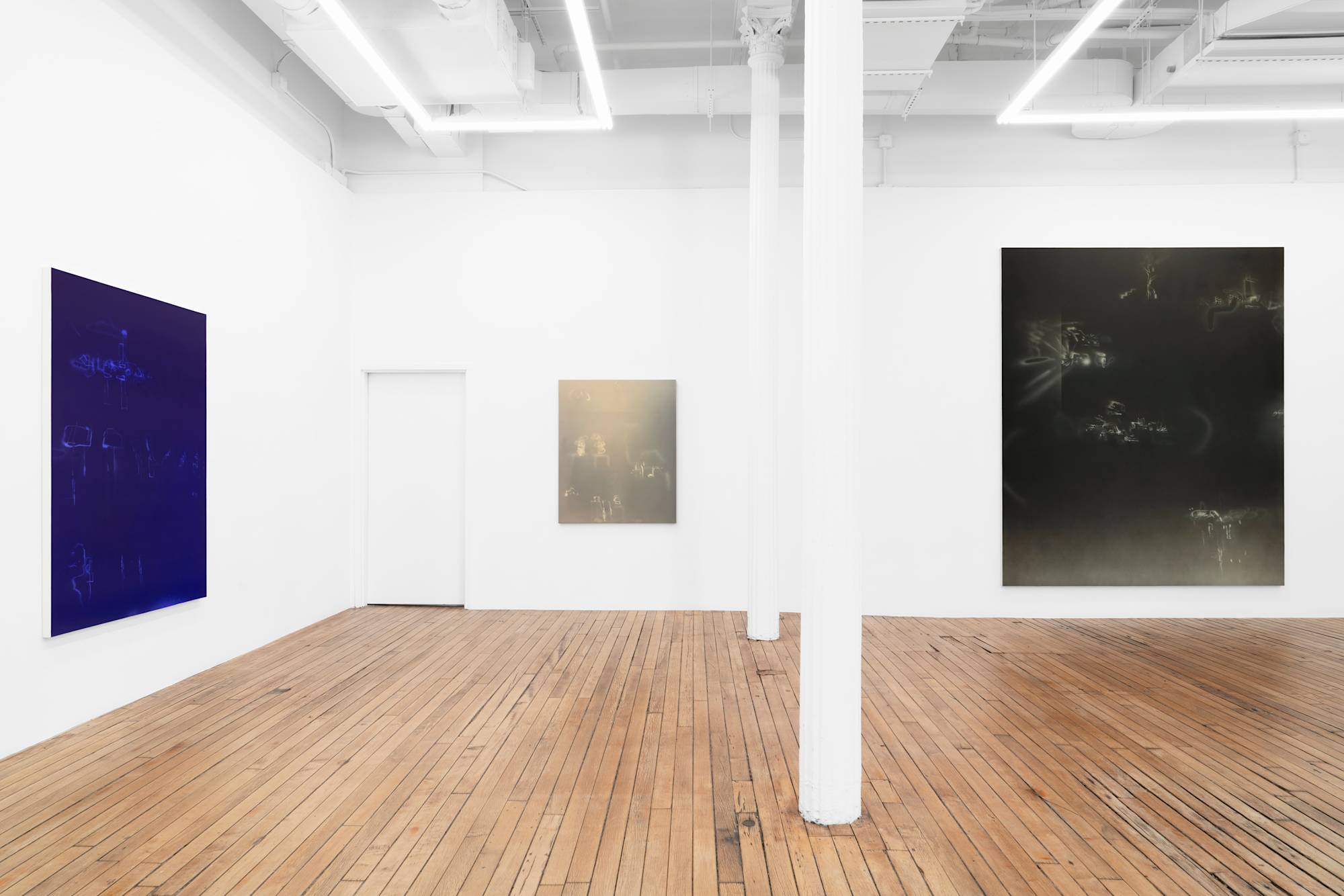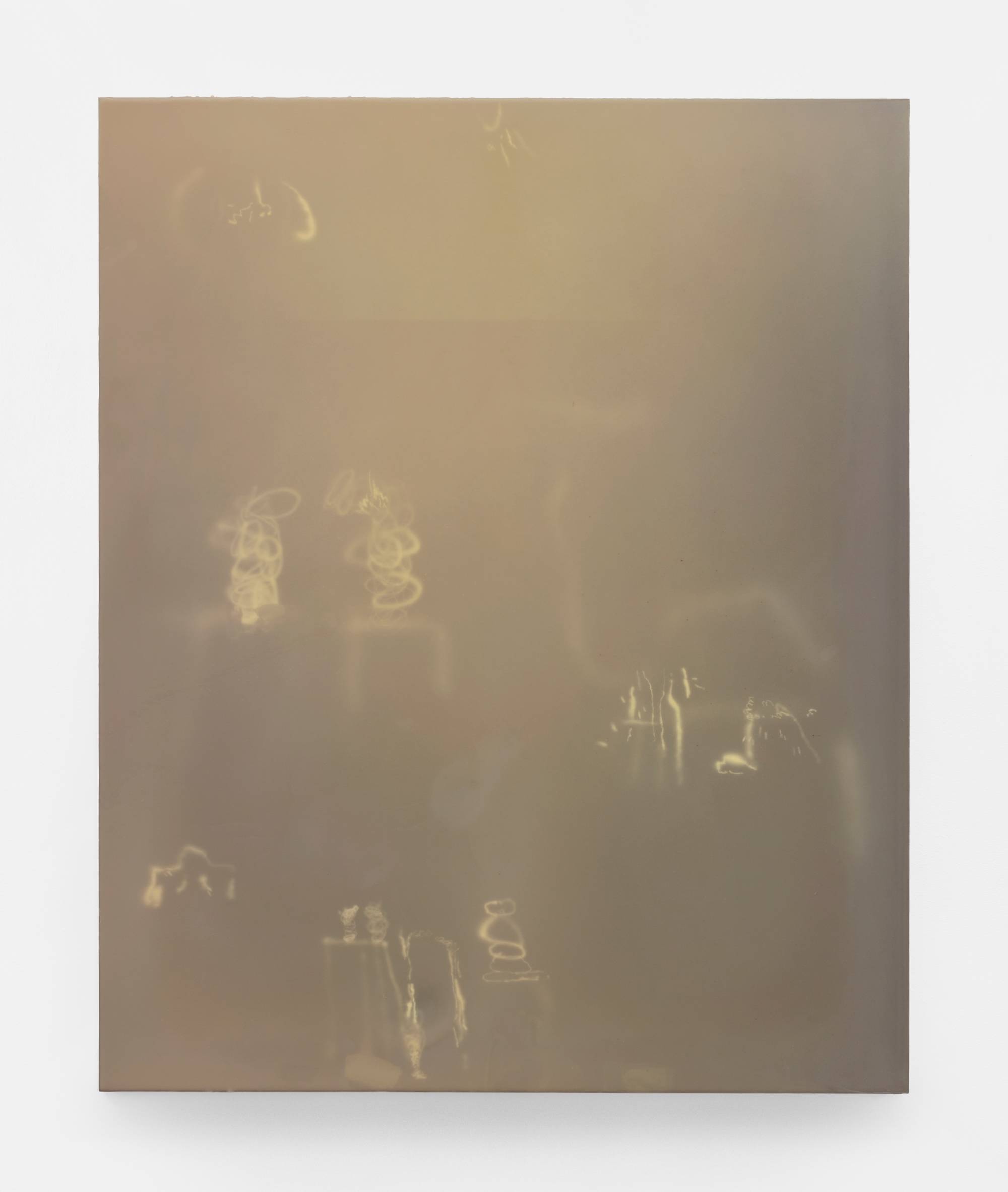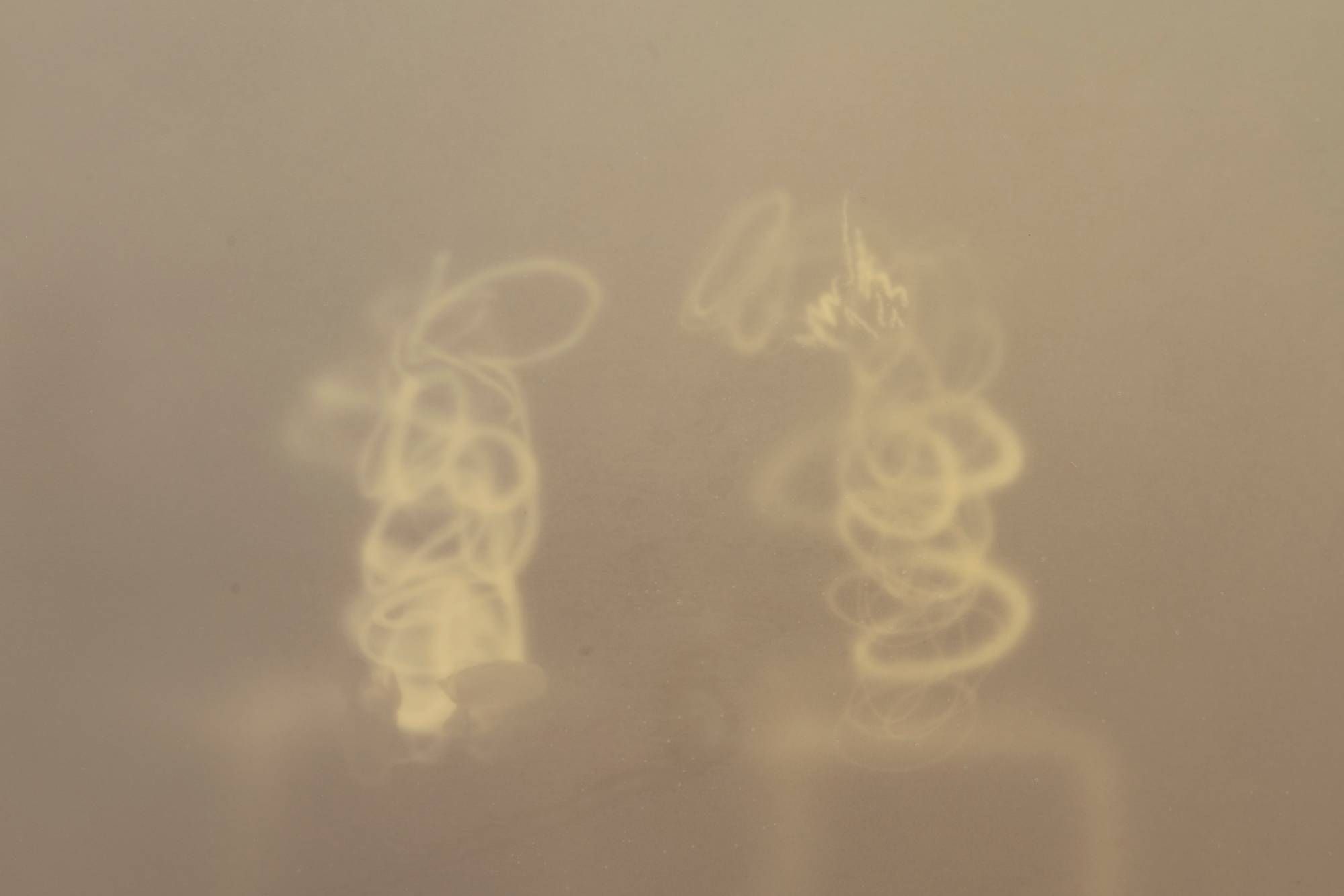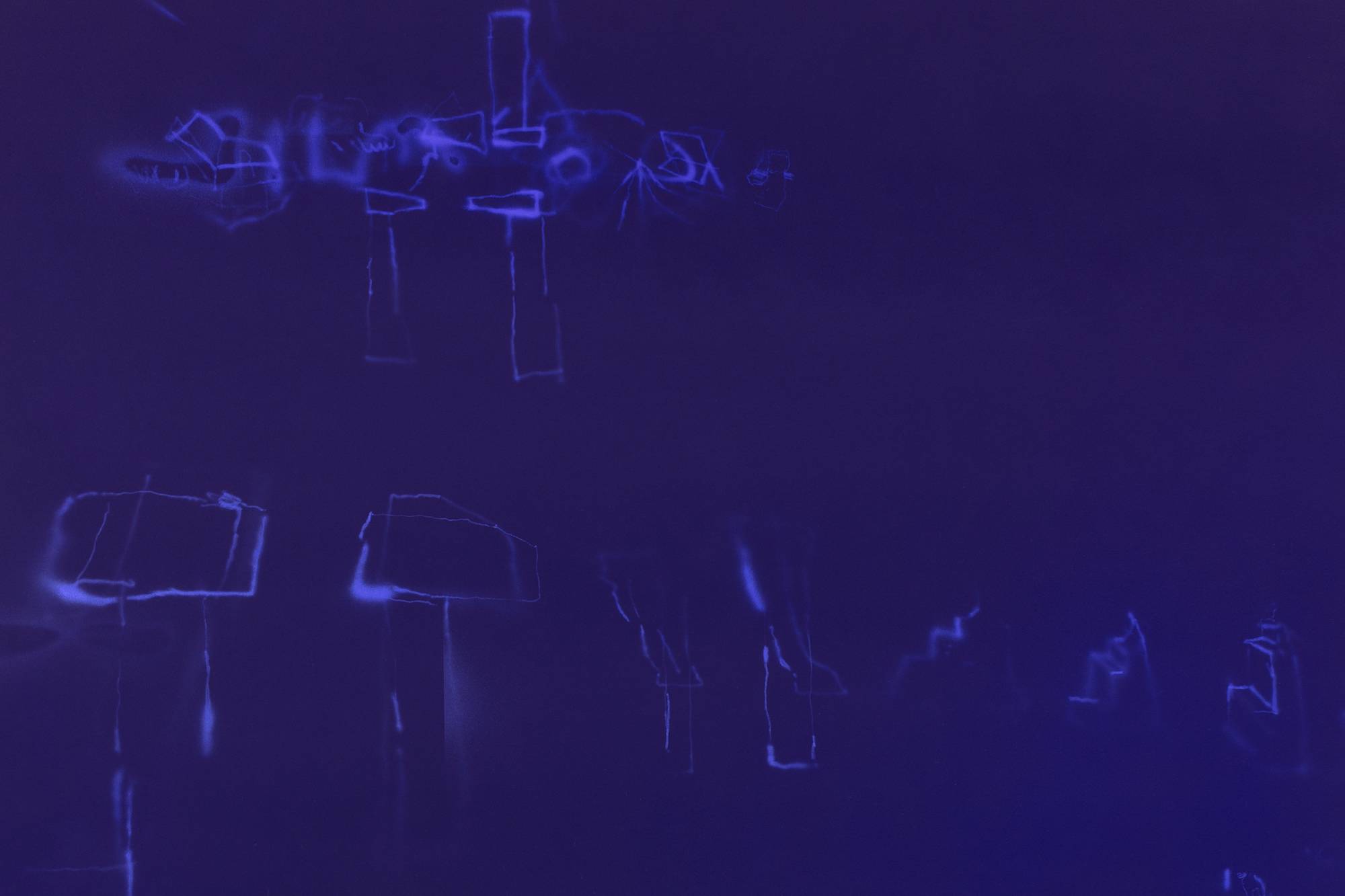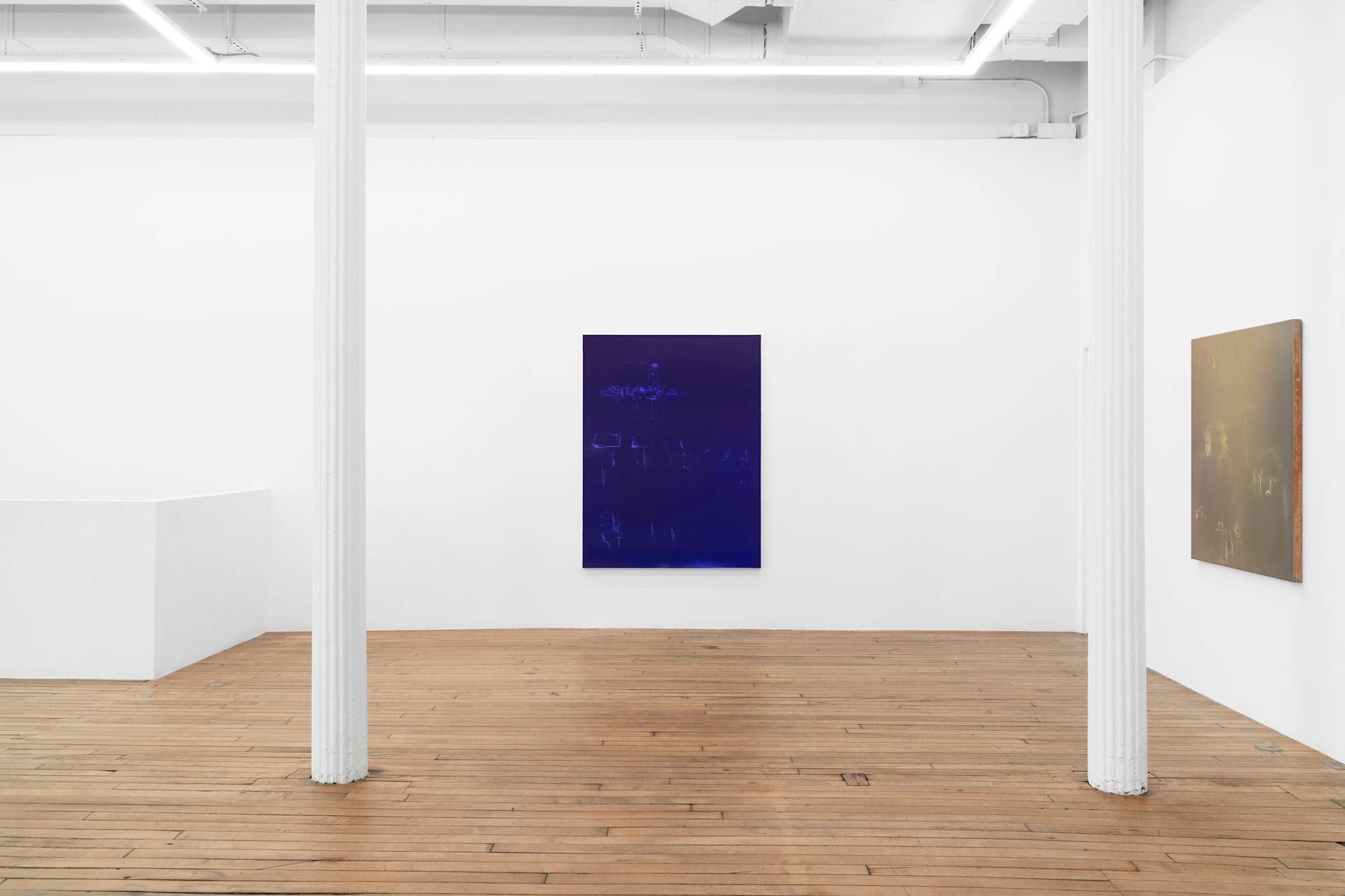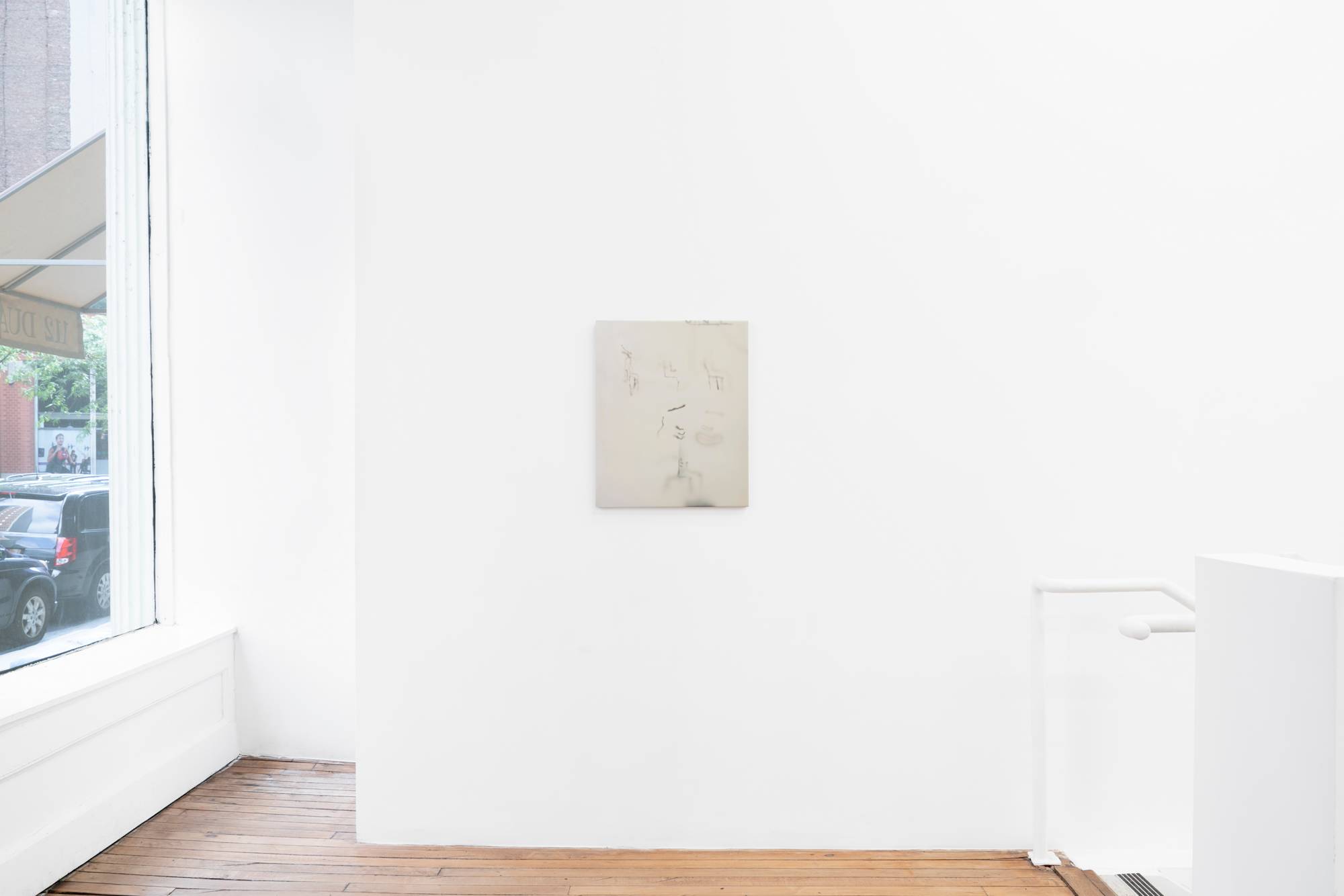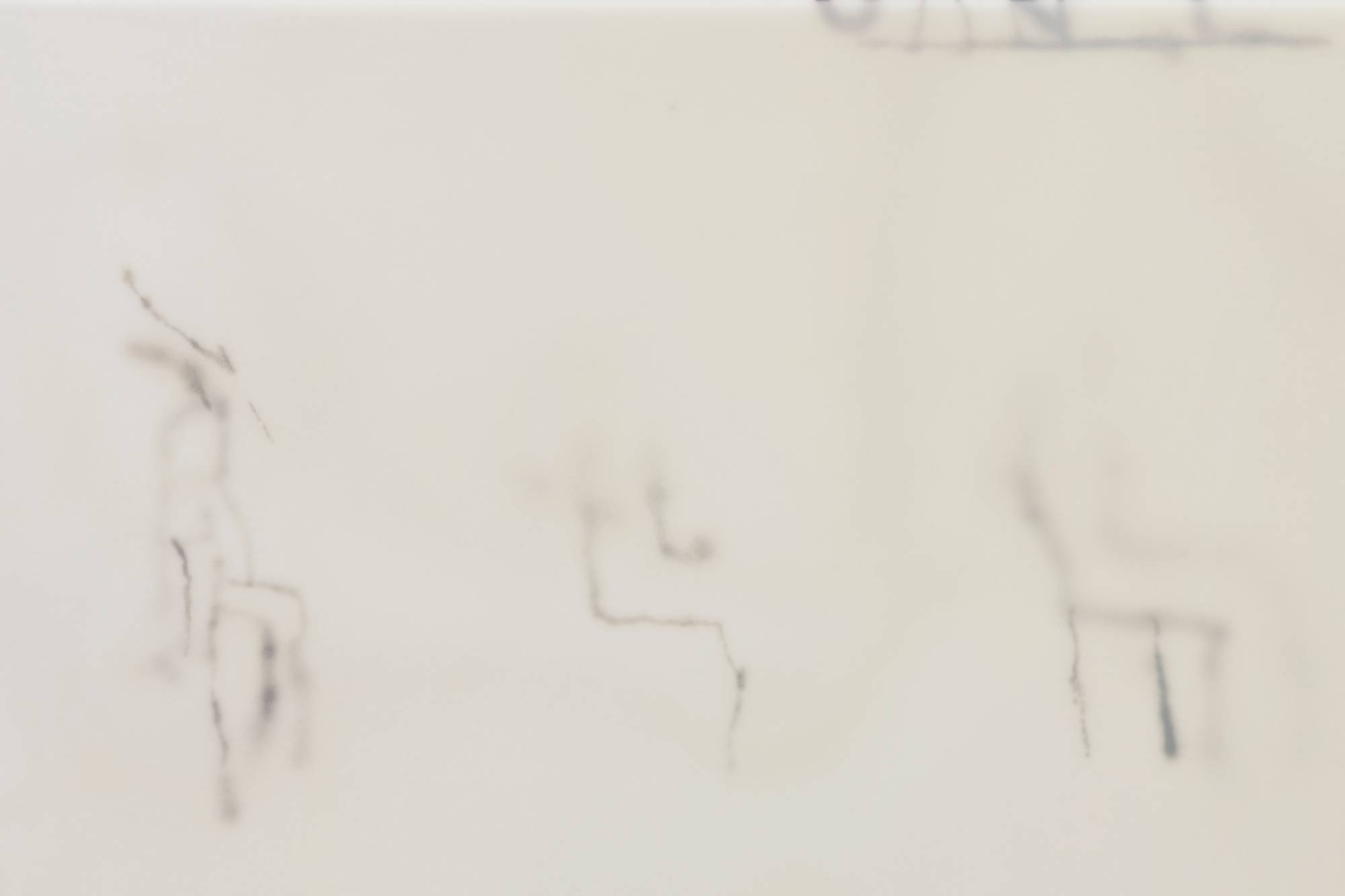Exhibition: Jerónimo Rüedi 2025
Jerónimo Rüedi Preaesns September 5 - October 25, 2025
In Preaesns, Jerónimo Rüedi’s first solo exhibition in the US, a suite of new paintings portray the unquiet vectors and orbital delays through which the mind can make a whole universe out of however little it sees. Vast expanses punctuate clusters of quickly rendered marks, made by hand and airbrush, that warp any clear-cut distinction between text and image, ligament and limb. In this limbo, they shape the teetering way that, in desiring meaning, relations between space and sight are clairvoyantly received. The titles of the works themselves attest as much, frying the logic of sense-making with recombination, resemblance, and playful anti-diction, to limn the multilingual world in which Rüedi, who lives between Mexico City and Berlin, paints: Aulcinnation gets close to the word for ‘hallucination’ in both English and Spanish, but is neither; Siegtemas might read as specifically as ‘victory theme’ in German or as generically as syntagma, the linguistic principle from the Greek, meaning ‘phrase,’ that the artist’s contraction almost obliterates.
Rüedi has long explored how viewers might be invited into his paintings, rather than confronted by their supposed exterior. Two of the works on display—Whgos Theroy and Oirgn 01—use encaustic technique, which involves encasing his canvases of aluminum and wood with a mixture of beeswax, resin, dry mineral pigment, and paint that Rüedi manufactures in his studio, along with the tools he uses to apply them. Lacy scribbles spread into curls or corners and glow like neon light against wide, empty ground, that, on close inspection, is revealed to be a dense, molten build-up it would be a mistake to call a surface. The result is a meticulous inversion of painting’s material properties and the comfy, clumsy vocabularies with which we want to describe what we see in them: the flatness of surface slacks concave and perforates; the speed of a light mark doubles as depth; empty space becomes a solicitation, as by a pool or a portal.
In the past, Rüedi has described his paintings as portraits of the time and space in which they are made. But these new paintings, many of which loom larger than human-size, are also portraits of our absorptive encounter with them. They insist on their own presence, and suggest a mutually constitutive relationship between the world and the tools, like science, or art, or language, we use to know it. The same thing happens in life. Try, for instance, using an extremely powerful device to clarify the hurtling movement of the night sky. An entire galaxy might crisply appear before you. What you are looking at, you see, is a smudge.
—Shiv Kotecha
Jerónimo Rüedi (b. 1981 Mendoza, Argentina) lives and works in Mexico City, Mexico. Rüedi attended the Escola Massana, Art and Design Centre, Barcelona, Spain; and received a Fine Art Degree from the Universidad Nacional de Cuyo, Mendoza, Argentina. Recent solo exhibitions include And Between us Occurs the Following Conversation, Galerie Nordenhake, Berlin, Germany (2025); Yanhuitlán, Museo del Ex-Convento de Yanhuitlán, Oaxaca, Mexico (2024); Tabula Rasa, Museo de arte contemporáneo de Oaxaca, Oaxaca, Mexico (2024); Systems, Galerie Nordenhake, Mexico City, Mexico (2024); Khōra, Galerie Nordenhake Stockholm, Sweden (2023); To see through all things clearly is to see through all things dimly, Galerie Nordenhake, Mexico City, Mexico (2022); Drawing the Boundaries of a Fire, Galería Karen Huber, Mexico City, Mexico (2021); In the Beginning the World Was Completely Real, Colector Gallery, Mexico City, Mexico (2020). Recent group exhibitions include Works by Colección Jumex, Museo Jumex, Mexico City, Mexico (2024); Tiempo compartido, Museo de Arte Carrillo Gil, Mexico City, Mexico (2023); Tamayo Bienal, Museo Tamayo, Mexico City, Mexico (2019); Tamayo Bienal, Museo de Arte Contemporáneo de Oaxaca, Oaxaca, Mexico (2019). Rüedi’s work is held in the collection of Museo Jumex, Mexico City, Mexico.
In recent years, Rüedi has been a resident artist at Casa Wabi (2023), the Museo Experimental El Eco (2016), and produced stage scenery for the play Jazz Palabra by Juan José Gurrola (LA Theater Center, Los Angeles, California, 2015 / Casa del Lago, Mexico City, 2014). Rüedi has published three books: TUNING THE SKY, Zolo Press (2024); Colorless green ideas sleep furiously, Gato Negro Ediciones (2020); and The stuff dreams are made of, Macolen (2017). He is one of the co-founders of Aeromoto, the public library for contemporary art and culture in Mexico City, Mexico.
Forthcoming solo exhibitions include Museo Experimental el Eco, Mexico City, Mexico (2026); Museo Palacio de Bellas Artes, Mexico City, Mexico (2027).
